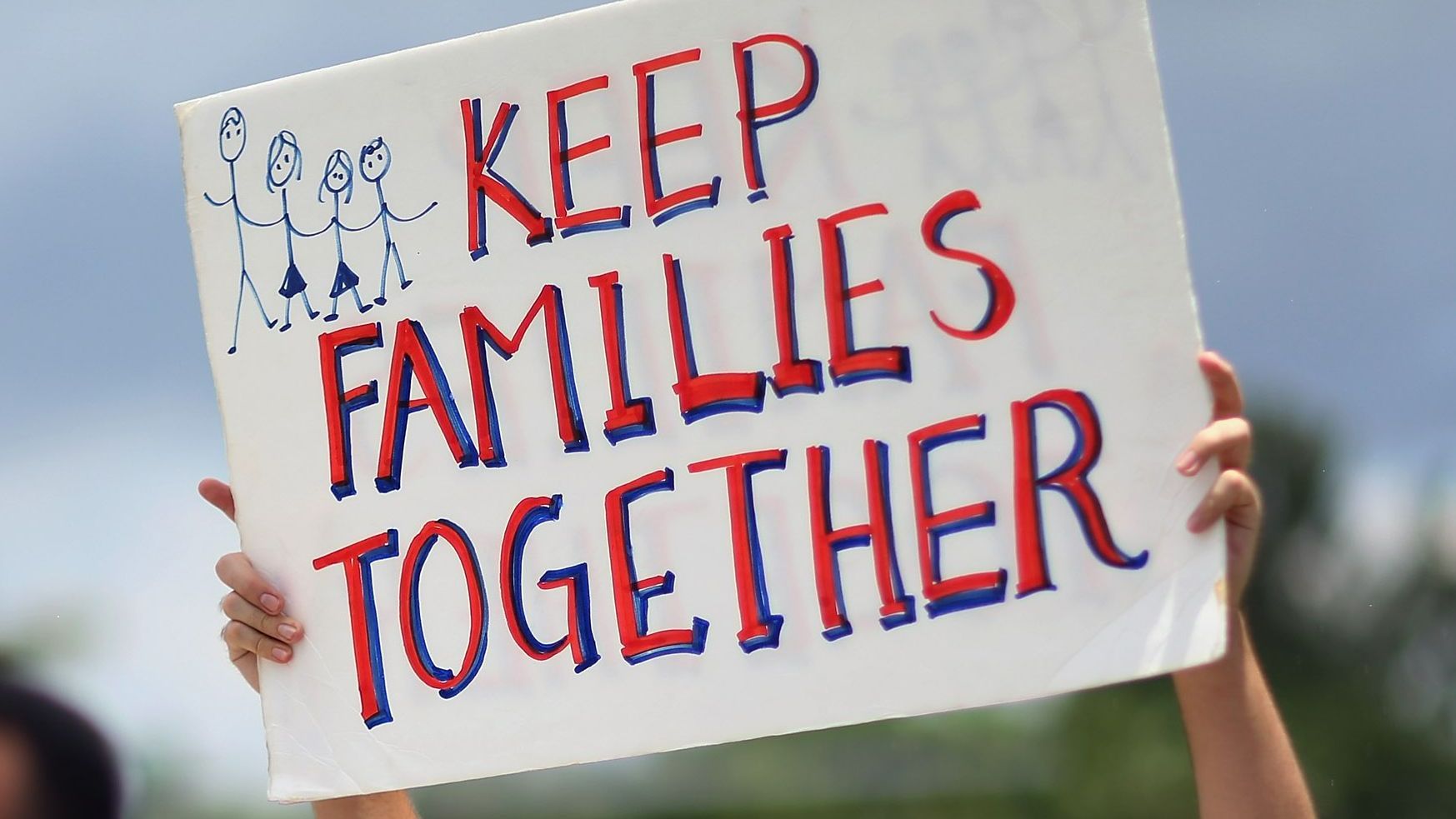What is Parole in Place?
Denice Flores • February 24, 2023
U.S. Citizenship and Immigration Services (USCIS) may grant parole in place to military families. Here is what you need to know about parole in place.
The U.S. may grant parole in place for urgent humanitarian reasons or for significant public benefit. INA 212(d)(5)(A).
Parole in place was created to benefit military families with undocumented family members in the United States. Parole in place is for military service members or the service member’s spouse, widow, parent, son or daughter. The service member must be an active-duty member of the U.S. armed forces, in the selected reserve of the ready reserve, or the service member (alive or deceased) must have previously served on active duty or in the selected reserve of the ready reserve and must have been honorably discharged.
One very important factor to consider when determining whether the individual qualifies for parole in place or not, is that the individual must be present in the United States without having been admitted into the country. This means that the individual must have entered the United States unlawfully. If for example, the individual was admitted into the United States with a visa but the visa and lawful status later expired, and the individual is still in the United States, the individual does not qualify for parole in place because he or she entered lawfully and was admitted into the U.S.
If the individual is eligible based on the requirements above, the following documentary evidence must be submitted to USCIS, with the parole in place request:
- Evidence of the family relationship, such as: marriage certificate, documentation of termination of previous marriage, son or daughter’s birth certificate, current or former service member’s birth certificate with parent’s name; or proof of enrollment in the Defense Enrollment Eligibility Reporting System (DEERS);
- Evidence that the family member is a current or former member of the U.S. armed forces;
- Parents of current and former service members of the U.S. armed forces must provide evidence that the current or former service member supports the application for parole in place;
- Evidence of any additional favorable discretionary factors that the individual would like USCIS to consider. The evidence should show USCIS the urgent humanitarian reason for the request or the significant public benefit of granting the parole in place request; and
- Two identical, color passport-style photographs of the individual applying for parole in place.
If USCIS approves the parole in place request, the individual is protected from deportation and may also be eligible for employment authorization. The parole in place approval authorizes the individual to stay in the U.S. for a one-year period. The individual is given an I-94 document as evidence of the parole and the I-94 is evidence of a lawful entry for purposes of other potential immigration relief.
Please note, parole in place is not the same as deferred action. Deferred action has different eligibility requirements. If you are looking to speak with an attorney about deferred action, our firm can also assist you.
If you have any questions about parole in place and other potential forms of immigration relief after being granted parole in place, like adjustment of status, please schedule a consultation with one of our experienced attorneys and we will be more than happy to assist you.
This blog is not intended to be legal advice and nothing here should be construed as establishing an attorney client relationship. Please schedule a consultation with an immigration attorney before acting on any information read here.
Denice Flores
Similar Posts

On August 26, 2024 , the United States District Court for the Eastern District of Texas, in Texas v. Department of Homeland Security , Case Number 24-cv-306 administratively stayed the Department of Homeland Security from granting parole in place under Keeping Families Together for 14 days. In Texas v. DHS , the State of Texas and several other plaintiffs argue that the DHS has implemented policies that they believe violate federal immigration laws. Specifically, they claim that DHS's guidelines on immigration enforcement and deportation procedures are too lenient and do not align with statutory requirements. The plaintiffs argue that these policies undermine state sovereignty and contribute to increased illegal immigration, which they believe has negative repercussions for public safety and resources. During the 14 days, USCIS will not grant any pending parole in place application under Keeping Families Together ; USCIS will continue to accept applications for parole in place for certain noncitizen spouses and stepchildren of U.S. Citizens, and will continue to schedule biometric appointments and capture biometrics for applicants. Note, that the district court’s administrative stay order does not affect any applications that were approved before the administrative stay order was issued on August 26, 2024. As of now, the program is on hold for 14 days, but that hold could be extended while the court considers arguments in the case. If you have any questions or concerns, contact our office to schedule a consultation with our experienced immigration attorneys.

On June 18, 2024, President Biden announced a series of immigration actions using the authority granted to him by our existing immigration laws. These actions will help certain undocumented individuals in the United States, including: Spouses and children of U.S. citizens who have been living in the United States for at least 10 years. You may be eligible to apply for your green card without leaving the United States, if, as of June 17, 2024: ○ You are in the United States after entering without permission; ○ You have lived in the United States for at least 10 years and have never left; ○ You are legally married to a U.S. citizen or have a qualifying stepchild relationship with a U.S. citizen; and ○ You do not have certain criminal history or pose a threat to national security or public safety. If you meet these criteria, the government MAY grant you parole-in-place. Parole would be granted for a one-time period of three years. You may also be eligible for employment authorization for up to three years. If you are granted parole y ou may apply for your green card within three years of approval. Eligibility is determined on a case-by-case basis. College-educated DACA recipients and Dreamers who are qualified for nonimmigrant status, such as an H-1B specialty occupation visa. You may be eligible to apply for a temporary visa more easily, if: ○ You have a degree from an accredited U.S. institution of higher education; and ○ You have an offer of employment from a U.S. employer in a field related to your degree. Please note that these programs have NOT YET begun. Details on how to apply are expected to be released by the end of the summer through a Federal Register notice. This means: You cannot submit an application at this time. An early-filed application will be rejected . You should not pay anyone a fee associated with filing an application at this time. Be patient and take the time to find the right help. The wrong advice could harm your chances of staying in the United States, getting lawful status, or becoming a U.S. citizen. Don't be fooled by notarios and other consultants who promise immediate results or special solutions in order to steal your money. Many unscrupulous individuals will cost more than licensed attorneys! If you are unsure if someone is qualified to help, ask for proof of their credentials and retain a copy of that evidence. This program could also be legally challenged, which could impact its implementation. This makes it even more important to have a qualified, knowledgeable attorney. USE AILA’s Find an Immigration Lawyer Search, ailalawyer.org , to find a licensed immigration attorney in good standing. Or find an accredited representative at: https://www.justice.gov/eoir/find-legal-representation . FONT: https://www.aila.org/library/information-and-guidance-on-new-actions-to-promote-family-unity

On March 31, 2024, U.S. Citizenship and Immigration Services (USCIS) implemented a policy update that limits gender marker selections on all immigration forms and systems to two biological sexes: male and female. This change eliminates the option for applicants to select a non-binary or “X” gender marker—an option that had previously been permitted on some forms. While USCIS emphasizes that this update does not change who qualifies for immigration benefits, it may significantly impact how certain applications—particularly asylum claims based on gender identity-related persecution—are understood and evaluated. What Has Changed? Under the revised policy, applicants may now only choose “Male” or “Female” when completing USCIS forms. The ability to select a non-binary or third-gender option is no longer available. Applicants may still request to change their gender marker with USCIS, but only within the male/female binary. Supporting documentation, such as medical or legal records, is not required to make the change. This means that transgender individuals can still align their gender marker with their identity—if it falls within the two binary categories—but non-binary individuals are no longer represented. The change follows guidance issued by the federal Office of Management and Budget (OMB), which called for greater consistency in the collection of sex and gender data across federal agencies. Impact on Asylum Applicants This policy update is especially important for individuals applying for asylum based on persecution related to their gender identity. Under U.S. immigration law, asylum is available to people who have suffered persecution—or fear future persecution—based on their membership in a “particular social group.” This includes people targeted for being transgender, gender non-conforming, or otherwise not aligning with socially expected gender roles in their home country. Although the legal standard for asylum remains unchanged, the removal of the non-binary gender marker could make it harder for some applicants to clearly present and document their identity. In asylum cases, credibility and clarity are crucial. The ability to accurately reflect one’s gender identity on official forms can play an important role in establishing the foundation of a persecution claim. Now, applicants who identify as non-binary or outside the traditional male/female categories may be forced to select a gender that does not align with their lived experience. This could lead to confusion in their case file or require additional explanation during interviews or hearings. This policy could weaken the strength of some asylum claims—not because the underlying facts have changed, but because the official forms now fail to reflect the applicant’s true identity. For example: A non-binary person applying for asylum after being targeted in their home country may now have to select “Male” or “Female” on their asylum application, despite not identifying as either. This mismatch may lead adjudicators to question the applicant’s identity, possibly weakening the strength of the claim or requiring added clarification and documentation. In defensive asylum cases—where applicants are in removal proceedings—such inconsistencies could create unnecessary hurdles and complicate the evidentiary presentation. What Can Applicants Do? Despite the change, individuals can still pursue asylum based on gender identity. The underlying eligibility criteria remain the same. However, applicants should be prepared to clearly explain any differences between their stated identity and the gender marker required on USCIS forms. Applicants are encouraged to: Include a personal declaration explaining their gender identity in detail and how it relates to their fear of persecution. Provide evidence such as affidavits, country condition reports, or expert testimony that supports the claim. Work with an experienced immigration attorney who can help present the claim effectively and prepare for any questions that might arise from the new form limitations. The new USCIS policy on gender markers may seem like a technical update, but for asylum seekers fleeing gender-based persecution, it has real implications. While individuals are still legally eligible to seek protection, the limitation to binary gender options could make it more difficult to fully and clearly present their case. If you or someone you know is facing immigration challenges related to gender identity—or is concerned about how this policy may impact an asylum claim—please contact Santos Lloyd Law Firm to schedule a consultation with one of our experienced immigration attorneys. We’re here to help ensure your voice is heard and your case is handled with the care and expertise it deserves.

In 2025, the immigration landscape continues to shift under the weight of national security concerns, ushered in by Executive Order “ Protecting the United States From Foreign Terrorists and Other National Security and Public Safety Threats. ” This directive tasks federal agencies—including the U.S. Department of State—with implementing enhanced screening and vetting protocols for all foreign nationals seeking visas or other immigration benefits. The result? A dramatically intensified vetting process, along with mounting concerns from immigrants, attorneys, and civil liberties advocates alike. Traditionally, airport security focused on verifying travel documents and screening for prohibited items, while consular officers assessed the legitimacy of visa petitions and the admissibility of applicants. Extreme vetting, however, represents a significant shift toward a far more invasive and comprehensive investigative process. It now includes detailed background checks, biometric verification, digital forensics, and expansive scrutiny of an applicant’s online presence and criminal or financial records. Since President Trump’s second term began in January 2025, the implementation of extreme vetting has expanded rapidly. Today, border screenings go far beyond routine document checks, encompassing a full-scale evaluation of a traveler’s digital life. This pivot reflects the administration’s intensified focus on national security, but it has also triggered urgent discussions about privacy, due process, and the fairness of modern immigration enforcement. At U.S. ports of entry—especially airports—noncitizens are now subject to rigorous and invasive procedures, including: Inspection of cell phones, laptops, and other devices (including deleted content) Review of social media activity on platforms like TikTok, Instagram, and X (formerly Twitter) Biometric scanning, including fingerprinting and facial recognition These measures are no longer confined to travelers from high-risk countries. In practice, extreme vetting applies broadly across all nationalities, and increasingly affects lawful permanent residents as well. For noncitizens, this new landscape introduces a heightened level of uncertainty and vulnerability. Delays at U.S. consulates for visa issuance or renewal are becoming routine. Travelers must now be acutely aware of these changes, and those attending consular interviews or seeking visa renewals should be prepared to provide additional documentation verifying their maintenance of status, compliance with visa conditions, and the bona fide nature of their visa applications. It is critical to organize supporting materials in advance and be ready to answer questions about employment, education, travel history, and online activity. As the U.S. government continues to expand its use of data-driven risk assessment tools, travelers must adapt to a new normal, one where preparation is essential to navigating the immigration system without disruption.

For international business owners and entrepreneurs engaged in cross-border trade with the United States , the opportunity to expand operations and establish a physical presence in the U.S. may be more accessible than expected. The E-1 Treaty Trader Visa is specifically designed to facilitate this type of business activity and offers a strategic pathway for qualifying individuals to live and work in the United States while managing or developing trade relationships. While 2025 has brought a trend of changes in immigration policy, the E-1 visa continues to stand out as a viable and welcoming option . Despite increased scrutiny across various immigration categories, this visa remains suitable for those involved in consistent, qualifying trade with the U.S. Its structure and purpose align well with current business realities, making it a stable choice even amid policy shifts. The E-1 visa is available to nationals of countries that maintain a treaty of commerce and navigation with the United States . To qualify, applicants must demonstrate that they are engaged in substantial trade—defined as a continuous flow of sizable international transactions—primarily between their home country and the U.S. Unlike investment-based visas, the E-1 visa does not require a fixed monetary threshold. Instead, it emphasizes active commercial exchange, such as the regular transfer of goods, services, or technology. This visa is applicable across a wide range of industries , including but not limited to manufacturing, logistics, professional services, consulting, finance, tourism, and technology. If more than 50% of your international trade is with the United States, and the business activity is consistent and well-documented, the E-1 visa may be a strong fit for your current business model. In addition to its flexibility, the E-1 visa is renewable as long as the trade activity continues. It also extends benefits to eligible family members: spouses and unmarried children under 21 may accompany the principal visa holder, and spouses are eligible to apply for U.S. work authorization, offering added support and financial opportunity for the family. This visa category is particularly well-suited for business professionals who are already operating in international markets and looking to formalize or expand their presence in the U.S. It rewards active engagement, proven commercial performance, and long-term trade partnerships. If you are currently engaged in trade with the United States and are considering expanding your business operations, the E-1 Treaty Trader Visa may provide a clear and effective route forward. Our attorneys at Santos Lloyd Law Firm are here to help you assess your qualifications and guide you through each stage of the process with clarity, strategy, and confidence.



